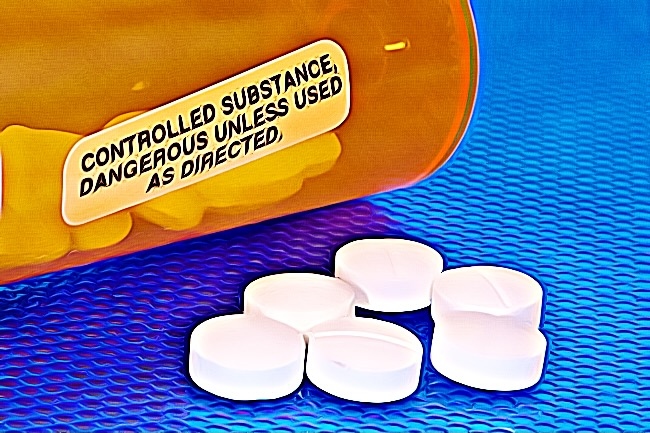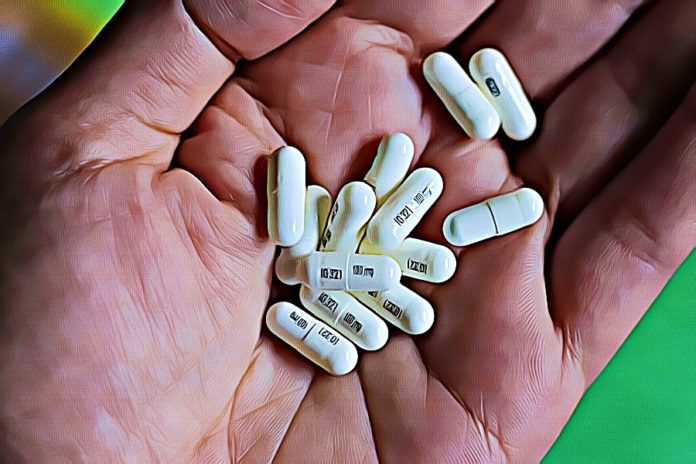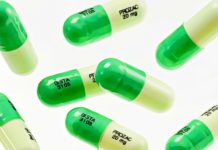Is Gabapentin a Controlled Substance?
Gabapentin is not a controlled substance. However, some states consider it a Schedule V drug. According to the US Department of Justice, Schedule V controlled substances have a low potential for abuse relative to the other substances in Schedule IV.
Schedule V substances include cough preparations containing not more than 200 milligrams of codeine per 100 milliliters or 100 grams. But they consist primarily of preparations containing limited qualities of some narcotics.
Although Gabapentin is an effective medication for various illnesses, remember that it is still a drug. In the hands of the wrong people, it can turn into a substance they become addicted to. As a result, they might experience dependence and overdose, which are common issues for people with addicting medications. However, what is Gabapentin for? Here are some ideas.
Why is Gabapentin a Controlled Substance in Some States?
The FDA has not classified gabapentin as a controlled substance. However, some states have classified it as a controlled substance. It is classified as a Schedule V drug in Alabama, Arkansas, Florida, Illinois, Mississippi, Tennessee, and Wisconsin. In Kentucky, gabapentin is classified as a Schedule IV drug.
Meanwhile, it is classified as a Schedule III drug in Louisiana and Virginia. Some states have not classified gabapentin as a controlled substance. However, they have placed it under their state laws and regulations. People residing in these states may need a prescription to obtain gabapentin.
What is a Schedule V Drug?
Schedule V drugs have a lower potential for abuse than Schedule IV drugs. They also have accepted medical uses. However, they may lead to physical or psychological dependence. Physical dependence occurs when the body develops tolerance to the drug. The person needs to take higher drug doses to experience the desired effects.
Meanwhile, psychological dependence occurs when the person needs to take the drug to cope with stress or to feel happy. The person may also experience negative emotions when not taking the medication. People addicted to drugs may be unable to control their drug use and may continue using it despite the negative consequences. Drug addiction can cause an intense craving for the drug.
Is Gabapentin Addictive?
Gabapentin is not considered an addictive drug. However, some people may develop a dependence on it. They may need to take higher drug doses to experience the desired effects. People who stop taking gabapentin may also experience withdrawal symptoms. These symptoms may include anxiety, insomnia, and nausea.
Meanwhile, other symptoms include anxiety, bipolar disorder, depression, epilepsy, and migraines. Usually, withdrawal begins within 12 hours to a week after quitting the medication. The feeling of wanting the drug can last up to ten days maximum. Therefore, patients wishing to get off Gabapentin should taper off their dosage with the guidance of their doctors.
Why Can Gabapentin Become Addicting?
Gabapentin abuse is becoming more common because the drug has a calming effect and can cause feelings of euphoria. It is often used with other medications, such as opioids, to enhance the results. Gabapentin is not a controlled substance, so it is easy to obtain.
Gabapentin abuse can lead to dependence and addiction. People who abuse gabapentin may take higher doses than prescribed or take the drug more often than prescribed. They may crush the pills and snort them or mix them with water and inject them.

Some Gabapentin side effects include drowsiness, dizziness, nausea, diarrhea, blurred vision, and weight gain. It can also cause people to experience swollen ankles and feet, coordination issues, fatigue, and memory problems.
Meanwhile, overdose is also a potential issue with Gabapentin. Taking medicine beyond the prescribed dosage can lead to a slower heart rate, shallower breathing, loss of consciousness, or unconscious. Therefore, people should help those abusing the drug as soon as possible.
What is Gabapentin?
Gabapentin is a prescription medication that is used to treat epilepsy. It also relieves pain associated with shingles (herpes zoster). Gabapentin is in a class of drugs called anticonvulsants, working by decreasing abnormal activity in the brain.
Gabapentin comes as a capsule, a tablet, an extended-release (long-acting) tablet, and an oral solution (liquid) to take by mouth. Gabapentin capsules, tablets, and oral solutions are usually taken with or without food three times a day.
The Common Uses of Gabapentin
Gabapentin works in the brain to prevent seizures and relieve pain for certain conditions in the nervous system. It is not for treating partial seizures that do not include muscle relaxation. However, Gabapentin may also treat other nerve pain, such as post-herpetic neuralgia.
Similar to other medications, there are also rules before taking Gabapentin. For example, it may not work well for people who have taken antacids or alcohol. Taking Gabapentin is also possible with or without having to eat. However, the dosage depends on the doctors’ orders. Make sure to take them as prescribed.
Gabapentin Abuse
Gabapentin abuse is often associated with other drugs, most commonly opioids. It is being used to enhance the effects of opioids and to reduce withdrawal symptoms. As a result, it has become a drug of choice for individuals addicted to opioids.
Gabapentin abuse can also lead to severe physical health problems like overdose and death. Like other drugs, Gabapentin abuse has severe side effects, including dizziness, sleepiness, nausea, blurry vision, headache, and dry mouth.
In some cases, Gabapentin acts as an adulterant for illicit drugs like heroin. Since it is a drug easily accessible to most people, people addicted to other drugs can easily have their hands on the medication for other uses.
Signs of Gabapentin Abuse
Gabapentin abuse can be challenging to identify. The effects of the drug can be mild and hard to spot. However, there are some signs and symptoms that may be a cause for concern. Gabapentin abuse can often impair judgment and coordination, leading to poor decision-making, accidents, and injuries.
Other signs of Gabapentin abuse include early prescription refilling, stealing pills, changing sleeping or eating habits, and buying it on the streets. Abuse can easily lead to overdose if not appropriately addressed. Therefore, people noticing signs in their loved ones should seek medical help immediately.
How Do People Overdose on Gabapentin?
Gabapentin overdose is often accidental. However, it can also be intentional. People may take an overdose to end their lives or to experience a high. An overdose of Gabapentin can occur if someone takes a hefty dose of the drug or if they have a reaction to a smaller quantity. People with a history of substance abuse or mental illness are at a higher risk of overdosing.
Gabapentin is often taken in combination with other drugs. People may mix it with alcohol or opioids to enhance the effects of the other drugs. However, this combination can also lead to an overdose. People with a history of overdoses should be cautious when taking Gabapentin. Gabapentin overdose can have serious consequences.
Conclusion
Gabapentin is a drug that is used to treat seizures and pain. It can be an effective treatment for some people. However, it can also lead to addiction and overdose. People taking Gabapentin should be cautious and monitor their drug use. It is generally considered safe, but it can also become a problem.
But the best way to combat Gabapentin abuse and overdose is to report people using the drug beyond its means. Therefore, observing family members and friends while they use the medication for other illnesses should be a mandatory action. If their efforts start to change, it may be best to seek medical help.
Source:
















